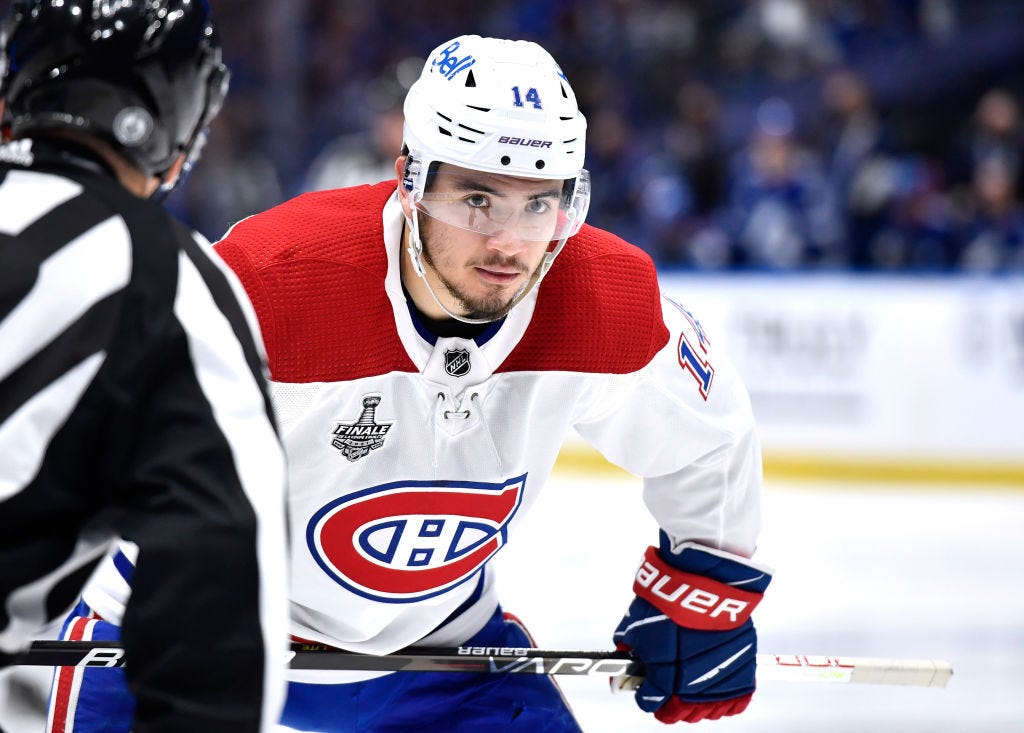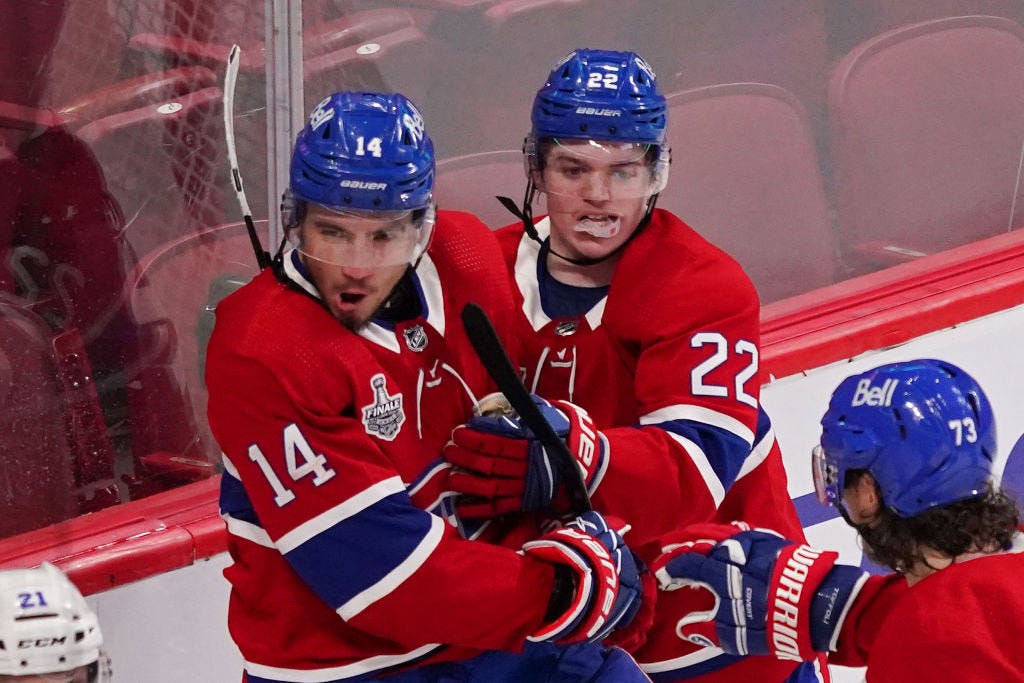Same-day analysis: Suzuki could be underpaid the moment his extension kicks in
The Canadiens wisely locked up their No. 1 center and future star with an eight-year deal that is going to look like a bargain from Day 1

If Marc Bergevin is indeed intent on keeping his job as GM of the Montreal Canadiens beyond this season – and we don’t even know whether that’s the case at this point – he should immediately walk into owner Geoff Molson’s office and say two words before turning on his heels and walking out. Those two words: Nick Suzuki.
Because of the dizzying number of transactions Bergevin has made, both big and small, in his nine years at the head of the Canadiens hockey operations department, it could be argued that the two involving Suzuki have been strokes of genius. From acquiring Suzuki in 2018 in the Max Pacioretty trade – and addressing the organization’s gaping chasm at center – to signing him to an eight-year contract extension on the eve of the Canadiens’ 2021-22 season opener, Bergevin has displayed his managerial acumen at its finest.
Getting the team’s No. 1 center under contract for the maximum of eight years at a cap number under $8 million represents an enormous coup for Bergevin and the Canadiens. Because here’s the thing. This contract doesn’t kick in for another season. There’s a very good chance by the time Suzuki receives his first paycheck of the 2022-23 season he could already be vastly underpaid. By the time he’s halfway through it, people might be investigating Bergevin for theft. Suzuki will be paid $63 million over eight seasons, so it’s hard to make the case that he’s going to regret this deal, but there’s little doubt that he left money on the table, potentially a lot of it, to get the security he wanted and to leave cap room for the Habs to build around him.
Even so it’s actually amazing that the Canadiens were able to get everything to go their way in this deal. First, they got a potential point-per-game scorer (and dare we say it, a future Patrice Bergeron) for an additional eight years without having to worry about a bridge deal. And they did it for under $8 million a year. They bought four years of free agency and put to bed early any notion that Suzuki was going to hit free agency and the Canadiens were going to be held hostage by the prospect of an offer sheet. Anyone who watched Suzuki through the playoffs a few months ago knows that this young man is the real deal and that he’s only going to get better. He’s entering his third season in the NHL, typically a year when elite players break out and become truly impactful players. It will also be the first season in which the Canadiens and the rest of the league get to see what Suzuki can accomplish in a full 82-game season.

Suzuki will likely start the season with Tyler Toffoli on his left and Cole Caufield on his right on a line that has the potential to be offensively explosive. He’ll also have some support with Christian Dvorak as his second-line center, which will take some of the pressure off him to produce and to play the difficult minutes against the top opponents. It should also be pointed out that Jake Evans will be counted on to take on some of Phillip Danault’s responsibilities. Suddenly, what was a black hole on the Canadiens’ roster doesn’t look so bad. Suzuki’s game is sure to develop even more at both ends of the ice and if he has the kind of season a lot of people think he’s capable of having, his price tag would have only gone up. And with the Canadiens still smarting from the Jesperi Kotkaniemi affair, they were wise to lock him up for the maximum term a year early.
To be sure, one of the reasons why the Canadiens felt they could part with Danault rather than overpay a one-way player was the progress Suzuki has made in his two years in Montreal. Suzuki is no stranger to the responsibility of a No. 1 center, having being one in junior hockey, but with Danault gone he’ll be required to take more of the big draws on the penalty kill and in defensive situations. And there’s nothing to suggest he’s not ready to take on the added role. The fact that the Canadiens have made him one of their rotating alternate captains in the absence of captain Shea Weber this season proves they also think he’s capable of taking on more responsibility.
Is this too much to expect from a 22-year-old player who has yet to play a full 82-game season? In some cases, it might be, but in the case of Suzuki, it doesn’t feel like that at all. It feels as though we’re just beginning to see what Nick Suzuki is capable of accomplishing.

